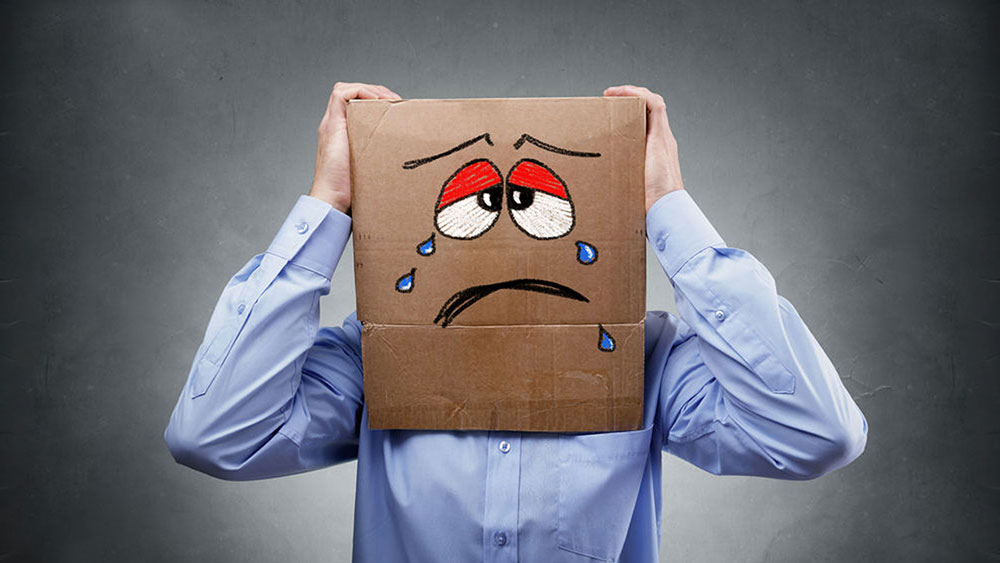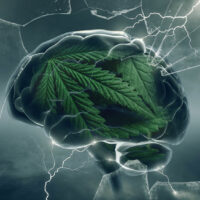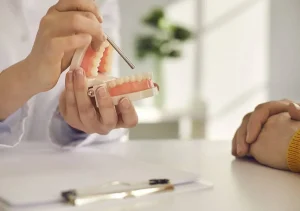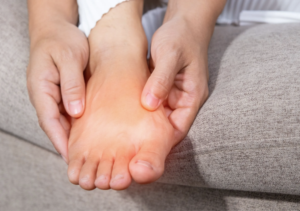More than 300 million people in the world suffer from depression, making it one of the world’s most common mental disorders. Does consuming cannabis help?
Depression can sometimes seem like an ‘error’ in our brain which makes it hard to change our perspective and the thoughts that keep us stuck in a loop.
However, as scientific research grows by leaps and bounds, researchers are starting to consider if depression is actually fueled by a misalignment in our endocannabinoid system.
This became a point of interest when one study figured out that “depression and pain co-exist in almost 80% of patients” and that “the majority of patients who suffer from the comorbid depression and pain are not responsive to pharmacological treatments that address either pain or depression”. (1)
But guess what re-aligns the human endocannabinoid system? The cannabinoids produced by a plant that’s been with humans for thousands of years—cannabis sativa.
What is depression and what are its signs and symptoms?
Depression is a mental health disorder that causes one to feel sad and empty for an extended period of time, sometimes with the added feelings of hopelessness and worthlessness.
According to the World Health Organization, around 800,000 people die each year in depression-related suicides.
There are a lot of factors that can trigger depressive behavioral patterns. Genetic predisposition and general temperament are considered to be the primary suspects. Serious illness, substance abuse, losing our loved ones, going through big transitions in life, medical problems, being involved in conflicts, and chronic stress can all play a part in inducing this mood disorder.
Being a victim of mental, physical or sexual abuse in childhood can often lead to developing depression later in adulthood. Certain pharmaceuticals can also cause this unwelcome state of mind; beta-blockers and antipsychotics may play a role in the development of depression in certain patients.
Symptoms of depression
Depression has several other symptoms that can occur individually or in combination, such as:
- Difficulty concentrating and remembering details
- Feeling constantly tired and a lack of energy
- Developing sleeping disorders like insomnia, or sleeping too much
- Having feelings of guilt, irritability, restlessness, hopelessness, pessimism or anxiety
- Losing interest in everyday activities
- Loss of appetite or overeating
- Physical aches and pains and digestive problems
- Suicidal thoughts
Conventional treatment for depression
There is no single effective treatment for depression.
Successful treatment usually requires a combination of antidepressant medication and/or cognitive-behavioral therapy (CBT) or interpersonal therapy, as well as lifestyle changes. It often requires a trial and error approach to find the right antidepressant medication or therapy.
But, some medications and other types of treatment do not have a satisfactory impact on all individuals. That is the main reason why people are turning to alternatives, like cannabis.
Research on cannabinoids and depression
Although marijuana is not the go-to treatment for depression today, throughout the history it was commonly used as an antidepressant.
The English clergyman Robert Burton recommended using “hemp-seed” for curing depression in his book “The Anatomy of Melancholy”, first published in 1621. Medical understanding has advanced quite a bit from the 1600s, but when it comes to this particular topic it feels like we’re still far behind, driving horse-drawn carriages.
Making treatment decisions for depression is difficult, so I’ll shed some light on this topic for you:
Humans have a network of cellular receptors called the endocannabinoid system. This system consists of cellular receptors and activators (agonists) and is responsible for psycho-physical harmony.
The receptors are spread throughout the body. CB1 receptors are located in the central nervous system, while CB2 receptors are found in the stomach, white blood cells and peripheral nervous system.
The activators are endocannabinoids, created by the body but can be supplemented from external sources, such as cannabis.
These two elements work together to ensure our engine is running smoothly. For example, when our body needs to regulate the temperature, it sends cellular activators (endocannabinoids) to CB1 receptors located in the hypothalamus which initiates an appropriate response.
Here’s where the possible link with the depression is:
According to researchers at the University of Buffalo, being under constant stress leads to producing less of these regulating chemicals in our brain, which increases the possibility of depression. (2)
Compounds found in marijuana (called cannabinoids) can supplement our very own endocannabinoid receptors, speeding up the recovery and growth of tissues.
In theory, cannabis should balance and align the endocannabinoid system, which should provide relief for people who are depressed, in more ways than one.
Besides restoring healthy cellular homeostasis, cannabis also offers a number of other effects—it lightens the mood and reduces other symptoms of depression such as loss of appetite, insomnia, and anxiety.
This is something that has been proved by researchers all across the world, starting with the University of Utrecht. (3)
Their study found that, when depressed individuals consume cannabis, tetrahydrocannabinol (THC) activates their endocannabinoid receptors and alters the negative responses to emotions and situations.
To quote the study:
“THC administration reduces the negative bias in emotional processing. This adds human evidence to support the hypothesis that the endocannabinoid system is involved in modulation of emotional processing.”
Now, at this point, you’re probably like — “this sounds great, but why do so many experts claim that cannabis actually causes depression?”
Well, research from 2006 surveyed 4400 participants about their cannabis use and feelings of depression.
According to their findings, there is no apparent connection between cannabis and depression.
Marijuana users, both occasional and daily, actually have a much lower risk of depression than non-consumers. (4)
As they concluded:
“These data suggest that adults apparently do not increase their risk for depression by using marijuana.”
That being said, the link between cannabis and depression still remains somewhat unclear, as there have only been a handful of dependable studies that we can cite.
If you Google “does cannabis cause depression”, you’ll see conflicting views. It’s certain that there is a relationship between marijuana and depression, but no clinical trials have yet proved that marijuana causes depression.
It seems that clinicians like to stick to the popular opinion that high doses of marijuana can cause depression, while low doses can relieve it.
Scientists from McGill University noticed that higher doses of synthetic THC seem to worsen the symptoms of depression and that lower doses of the same substance have an antidepressant effect. (5)
These findings make sense considering that cannabis produces biphasic effects.
THC vs CBD for depression?
When it comes to the most optimal THC and CBD dosage for battling depression, there have been many theories but only one comprehensive review study. Researchers from the Washington State University published an article in the August 2018 edition of the Journal of Affective Disorders, called “A naturalistic examination of the perceived effects of cannabis on negative effect”.
The study used feedback from more than 11,000 patients from an app called Strainprint, which provides a diary for medical cannabis patients to track their optimal strains and dosages. Their main goal was to analyze how current medical marijuana users medicate and how effective cannabis is at relieving the symptoms of anxiety, stress and depression.
According to their findings, low THC (<5.5%) high CBD (>9.5%) cannabis was best for reducing perceived symptoms of depression. However, the use of cannabis to treat depression appears to exacerbate depression over time. (6)
Exclusive bonus: Download a free dosage guide that will show you the exact step-by-step process Dr. Dustin Sulak used to successfully treat more than 18,000 patients with cannabis.
Before you start experimenting with marijuana for depression, talk to your cannabis-friendly doctor who can take into account your symptoms and medical history and give you more advice on choosing the right strain. Remember, finding the right strain is a process, so stay patient and informed.
Remember, finding the right strain is a process, so stay patient and informed.
Find the right strain for you
Whether you want to relieve anxiety, pain or depression, the right strain is out there. Use our online tool to narrow the search.
Get StartedReferences
- Huang WJ, Chen WW, Zhang X; Endocannabinoid system: Role in depression, reward and pain control (Review); Molecular Medicine Reports; 2016 Oct; 14(4): 2899–2903.
- Haj-Dahmane S, Shen RY; Chronic Stress Impairs α1-Adrenoceptor-Induced Endocannabinoid-Dependent Synaptic Plasticity in the Dorsal Raphe Nucleus; Journal of Neuroscience; October 2014; 34(44):14560–14570.
- Bossong MG, van Hell HH, Jager G, Kahn RS, Ramsey NF, Jansma JM; The endocannabinoid system and emotional processing: a pharmacological fMRI study with ∆9-tetrahydrocannabinol; European Neuropsychopharmacology; December 2013; 23(12):1687-97.
- Denson TF, Earleywine M; Decreased depression in marijuana users; Addictive Behaviors; April 2006; 31(4):738-42.
- McGill University; Cannabis: Potent Anti-depressant In Low Doses, Worsens Depression At High Doses; ScienceDaily, October 2007.
- Cuttler C, Spradlin A, McLaughlin RJ; A naturalistic examination of the perceived effects of cannabis on negative affect; Journal of Affective Disorders; 235:198-205







